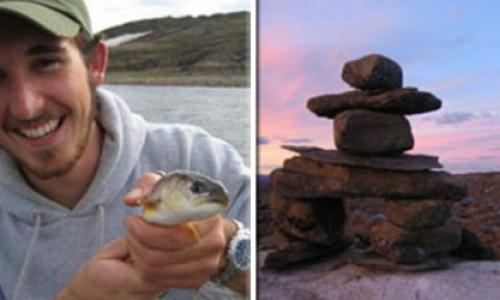
In light of the increased visibility of injustices around the world, taking a stand and contributing to social justice is becoming more prominent in our everyday lives. Our conversations and involvement in these social matters are important and you may feel a responsibility to speak up or contribute to the conversation. As you learn and advocate about different injustices, you may experience activism burnout with added stressors such as balancing work, personal life, school, and extracurricular activities.
Activism is the action of utilizing campaigns to bring about social, political, environmental, or economic change with the desire to make improvements in society and to correct social injustice. Burnout is the feeling of being overwhelmed emotionally, physically, or mentally. Continual exposure to stressful situations, like caring for an ill family member, working long hours, or witnessing upsetting news related to politics and school safety can lead to this stress condition. This can lead to fatigue, difficulty concentrating, chronic stress, illnesses, and a pessimistic outlook toward life. Combining the two terms together, activism burnout is a feeling that occurs when a political or social activist feels overwhelmed, frustrated, hopeless, or depressed, usually after a period of extensive activism. The feeling of activism burnout may also occur due to constant exposure to activist movements on social media.
Activism is all around us. At SFU, SFU 350 acted for full fossil divestment on campus. This past year, Olympic American gymnast Simone Biles spoke up for the prioritization of mental health among athletes globally, and Greta Thunberg has been actively standing for better care of the environment by challenging world leaders for a few years. As these examples suggest, activism comes in many shapes, forms, and sizes. We can be an activist by standing up for something that we believe in within our daily lives and beyond. However, at the same time, it is important to acknowledge that we don’t have to actively stand up for something at all times. Just like how we need to periodically take breaks from school and work to mentally and physically rest, we need to take breaks from activism too.
To gain a better grasp on how to cope with the pressure that comes with being an activist, we chatted with two registered clinical counsellors from SFU Health and Counselling Services (HCS). Here are some things that they had to say in regards to the questions asked:
What are the common signs of activism burnout?
Some initial physiological symptoms of activism burnout are having low energy or increased blood pressure and heart rate. These symptoms can lead to lack of engagement, difficulty standing up for beliefs, feeling unmotivated, and having self-doubt while continuing their activism journey. In addition, it impacts our mental and physical health and leads to anxiety and depression.
As current students are surrounded by technology, they can easily fall into the tendency to scroll through social media and online sources and be influenced by various activist and advocacy movements. The term “doomscrolling” can be used to describe the action of checking social media for news even when feeling disheartened and pessimistic. Doomscrolling can negatively impact mental health by feeling overwhelmed, stressed, and burned out from not knowing when to pause social media surfing to avoid these negative outcomes. This can lead to stressors with people feeling like they are not doing enough as an activist, especially when comparing themselves to others and feeling pressured to keep posting on social media. In addition, opposing views from external sources can make people question their own beliefs and values, or whether their role as an activist is benefiting the community.
What does healthy activism look like?
Healthy activism starts with assessing your needs and capacities. Check in with yourself by asking, “Do I have the capacity today or the rest of the week to undertake this task?” Also, be sure to consider your emotional and physical well-being. Checking in with yourself allows you to make a healthy decision and lets you understand how much you can offer. Another vital step is to gauge how comfortable you are in being an advocate for a certain topic/situation/event. Another check-in question is “Do I feel safe addressing the situation?” If you don’t, then that is perfectly fine. We all have different skills and abilities to participate in activism. It's important to learn to appreciate our own strengths and be mindful of what we can and cannot offer at that time. We do not need to be the best at all times. Perhaps your skills can be better utilized in another movement.
Finally, it is important to set realistic expectations as to what you can do. It is normal to feel like you aren’t doing enough when you don’t see a rapid change. You may even put more pressure on yourself to do more because you want to see immediate results. However, change is slow, and it takes a larger community to work together to make an impact.
How do you cope with the constant pressure that comes with being an activist?
Using humour! Also, finding a really strong and thoughtful support network is key. Remember, your support network doesn’t always have to be your family–they can be anyone. Friendships are important for education on different activist topics and even just connecting with others on similar topics you're all passionate about. This can also lead to creating groups that everyone is passionate about. Education is important, as when there are instances you are dealing with negative backlash, you can always go back to knowledge and awareness.
For coping specifically, touching upon your culture and spiritual practices or how your culture can contribute to challenging times as an activist is great to reflect upon as well. A crucial part of activism is wanting to touch upon who we are as people and where we belong. Our sense of belonging is a potent characteristic of who we are and finding a place where we know we belong is a noteworthy tool in coping with activism. With all the things happening as an advocate or activist, it's valuable to have, create or find a space where you belong, where your values are being appreciated. Similarly, have someone you can lean on and be vulnerable to. Someone you can show your sadness, frustrations, anger, and the authentic part of yourself. To recharge, connect with your authentic self by doing something such as talking to your support systems or taking time in a space where you feel valued.
Acknowledge the chance that you may get into a situation where there will be backlash and “thicken your skin." Think about how we can make this activist experience important to others as well. Question yourself–"How can we involve others rather than exclude others?" With activism, we can find ways to pull others towards understanding other perspectives. However, if you are overwhelmed, you can always step back, and that’s okay too. Give yourself permission to step back and set boundaries for yourself. Saying no to something is saying yes to something else, for example, “yes, my mental health is important." Adopting this perspective can be empowering.
How do you deal with the negative backlash from being an activist?
It almost feels as if negative backlash is inevitable when being an activist. First, let your frustrations out physiologically by crying, yelling, singing, doodling, or writing. Oftentimes, we try to figure things out and make sense all in our heads. It is normal to take negative backlash personally; however, that doesn’t mean that we should keep it to ourselves. Expressing it externally is a safe way to cope with distress.
Second, keep a healthy distance and set emotional boundaries with the person who is giving you the negative backlash. You can practice this by identifying where they are at within the topic of discussion, what makes the most sense to them, and how you can approach them to create little shifts toward approaching the situation in different ways.
Finally, acknowledge that it is okay for others to have extremely opposing views than yourself. As an activist, we always strive to make our voices and views heard and understood. However, it is okay if they end up not agreeing with you. What is important, however, is having that conversion and setting agreements on ways to communicate with each other. Remember that there are two levels of negative backlash: 1) not wanting to listen or have conversations, and 2) wanting to listen/have conversations and set respectful boundaries. It is okay for the conversation to end with conflicting views because everyone is different and comes from varying backgrounds and beliefs.
What are some ways to prevent burnout as an activist/what are some strategies to build resilience as an activist?
There are a few ways one can prevent or build resilience as an activist. The first is by setting a doable goal. Know and appreciate what you are able to offer rather than taking on more than you can handle. We all have different capacities to show solidarity. To set doable goals for yourself, you must practice when and how to say "no" and "yes". Take some time to consider the aspects that are important to you, such as your well-being, and ensure that you leave yourself time for them. If you feel that, for example, you're sacrificing your mental health to take on more, then it may be time to practice saying "no". We understand that it does take time to have the strength to walk away, especially for new activists. However, if you are taking on more at the deficit of your own mental or emotional health, then consider taking a pause and picking it up again later.
The next strategy is to give yourself a pat on the back for your work and involvement. We often get the idea that a job well done can only be acknowledged when there has been clear progress made. Yet, It is important to realize that it is difficult for one person to change the whole system. Therefore, be sure to celebrate the small steps!
Finally, have conversations with colleagues, friends, people whom you admire as an activist, and/or your ancestors. Ask them about their experiences and how they were able to balance being an activist and their well-being. Perhaps they themselves once faced activism burnout and can provide you advice as to how they were able to overcome it.
Do you have any additional advice for those who are experiencing activism burnout?
To mitigate the adverse outcomes that come from activism burnout, it can be very useful to create a positive environment for yourself. This includes recognizing your feelings and emotions while being able to express gratitude. Finding hobbies, activities, or even small moments to enjoy such as drinking coffee and reading your favourite book can help with alleviating stressors.
Another way is to be expressive in the language you're comfortable with and find your own style to cope with your unpleasant emotions. It is important to remember to give yourself permission to be mad and express your anger without suppressing it.
Finally, networking with like-minded people can help with talking about all the emotions you are feeling. This can include having a network of peers who share similar values and beliefs with you. Connecting with a therapist can also be extremely beneficial when dealing with activism burnout. They can provide professional advice and a new perspective by helping identify what you are going through while providing the comfort of having someone you can relate to and understand your position.
If any feelings of discomfort arise when reading this blog, please connect with the SFU Health & Counselling Services for well-being support, download the MySSP app, or contact the Fraser Health Crisis Line at 604-951-8855.














